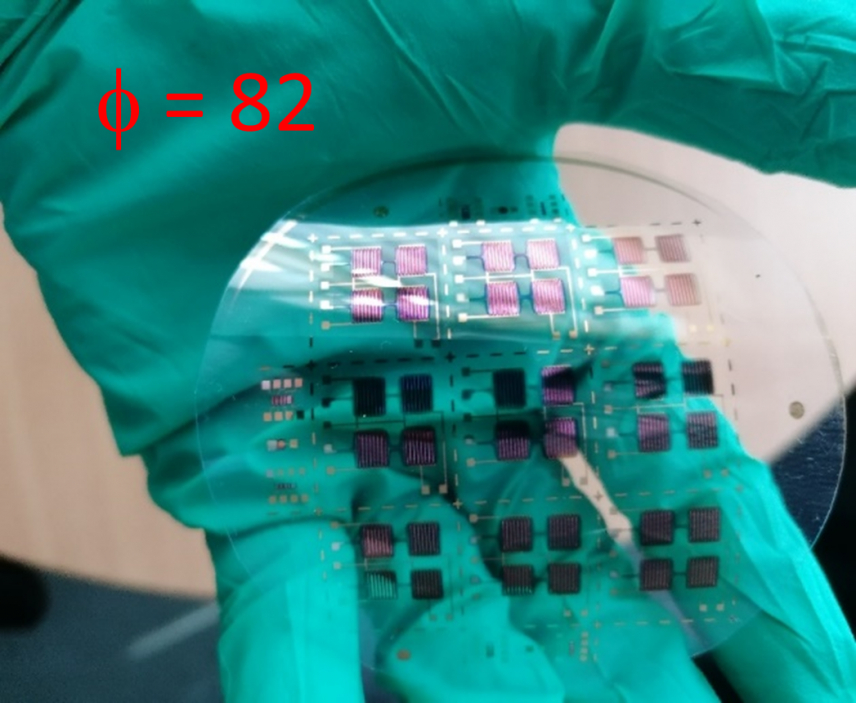As described in a paper just published in NPJ Flexible Electronics, a journal of the Nature group, an innovative fully flexible proton detector, operating at low-voltage (V = −1 V), has been developed within the FIRE project funded by INFN within the activities of the V National Scientific Group.
The success of the project is the result of a national collaboration between the CNR (SPIN-Naples and IMM- Rome), the Universities of Bologna, Trento and Naples (Federico II) and, obviously, the INFN.
The new device was realized on a flexible plastic substrate and is based on the coupling between organic photo-transistors, developed entirely at the CNR laboratories, and scintillators, also flexible and of organic nature, developed at the INFN. The project has allowed the two Institutes of the CNR, led respectively by Dr. Ettore Sarnelli and by Dr. Luigi Mariucci, to make SPIN and IMM the two reference foundries for the production of organic photo-transistors on large area flexible substrates.
The tests reported in the published work demonstrated the device's ability to measure the dose released by a proton beam in real time, which is useful for dose measurement in radiotherapy. The flexibility of the device allows it to be adapted to curved surfaces, a requirement that has emerged for the dosage of radiation in some oncological therapies. Real-time knowledge of the dose of energy released by protons to both diseased and healthy tissues would allow, on the one hand, to limit any collateral damage and, on the other hand, to minimize the doses to be used for treatment
The development of these devices paves the way for other applications where it is necessary to measure the energy released by ionizing radiation on generally curved surfaces and on arbitrarily large areas. These researches will continue in SPIN as part of the "NFFA" Research Infrastructure financed by the PNRR, which provides the setting up of a large laboratory of vacuum systems and materials analysis, in which a system dedicated to organic materials is expected.


